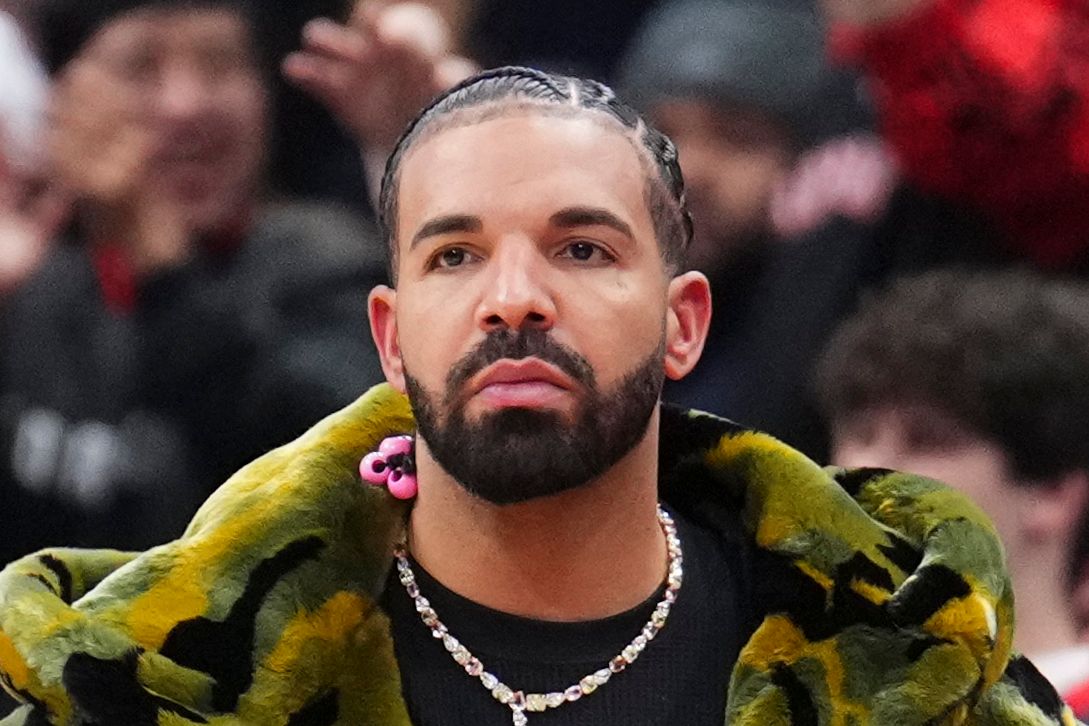Drake Sues Universal Music Group Over ‘Not Like Us’


Drake made his legal claims over “Not Like Us” official by suing Universal Music Group over releasing and promoting the song, in which Kendrick Lamar calls him a pedophile. Drake is claiming UMG, which is also his own label, defamed and harassed him, while choosing not to sue Lamar. Now, UMG is strongly denying Drake’s allegations and defending Lamar.
Drake is taking UMG to court
January 15 at 12:20 p.m.: After flirting with the possibility for months, Drake is suing Universal Music Group for defamation and harassment over releasing Kendrick Lamar’s diss track “Not Like Us.” Drake filed the suit January 15 against UMG, the label group that oversees both Lamar’s music and his own. “UMG approved, published, and launched a campaign to create a viral hit out of a rap track that falsely accuses Drake of being a pedophile and calls for retribution against him,” reads the lawsuit obtained by Vulture. Drake’s attorneys argue the allegations in “Not Like Us” are false because UMG would not have worked with the rapper since 2009 if it knew he was a pedophile. Crucially, Drake is not suing Lamar over the actual lyrics, but rather claiming UMG put “corporate greed over the safety and well-being of its artists.”
In a statement, Drake’s lawyers said he filed the lawsuit “to hold UMG accountable for knowingly promoting false and defamatory allegations against him.” They disputed the characterization as “a fight between rappers,” adding, “This lawsuit reveals the human and business consequences to UMG’s elevation of profits over the safety and well-being of its artists, and shines a light on the manipulation of artists and the public for corporate gain.”
The lawsuit cites the May 7 shooting of a security guard at Drake’s Toronto home — pictured on the cover of “Not Like Us” — as an example of violence incited by the song, released days earlier on May 4. After the shooting, “Drake and others labored to keep the man alive by applying pressure to the gunshot wound with towels,” per the lawsuit. Two other break-ins happened in the following days, according to the suit, and Drake also took his son out of school in Toronto over “safety concerns” because of the song. The lawsuit says he “confronted” UMG about the song and those issues, but “UMG refused to do anything to help.” UMG previously said, “The suggestion that UMG would do anything to undermine any of its artists is offensive and untrue.”
Drake’s lawsuit claims UMG was incentivized to promote Lamar at his expense ahead of his upcoming contract renegotiations, “to reduce” Drake’s “bargaining leverage.” The lawsuit also doubles down on Drake’s previous claim that UMG paid third parties to promote the song and to fake streams with bots on Spotify. UMG’s promotional strategy, Drake argues, made Lamar’s allegedly defamatory claims “ubiquitous.”
In a wrinkle, Drake is being represented by Michael J. Gottlieb, who previously represented the owner of the pizza shop at center of the “Pizzagate” conspiracy theories and election workers falsely accused by Rudy Giuliani of attempting to “steal” the 2020 election. The lawsuit calls Drake’s case “the 2024 equivalent of ‘Pizzagate.’”
UMG says Drake’s case is ‘illogical’
January 15 at 5:40 p.m.: Universal Music Group strongly denied Drake’s allegations in a statement, saying it’s “illogical” the label would work against one of its own artists. “We have invested massively in his music and our employees around the world have worked tirelessly for many years to help him achieve historic commercial and personal financial success,” a spokesperson said. The spokesperson noted that UMG has previously distributed Drake’s own songs as part of “conventionally outrageous back-and-forth ‘rap battles’” and accused Drake of seeking “to weaponize the legal process to silence an artist’s creative expression.”
While UMG’s statement did not name Kendrick Lamar, it was defensive of the artist, whom Drake is not suing. “We have not and do not engage in defamation — against any individual,” the spokesperson said. “At the same time, we will vigorously defend this litigation to protect our people and our reputation, as well as any artist who might directly or indirectly become a frivolous litigation target for having done nothing more than write a song.”
Related

Latest News
For Sale! 2016 Sea Ray 350 Sundancer – $180,000
Reel Deal Yacht is pleased to feature a meticulously maintained 2016 Sea...
The sailing gloves I’ve bought over and over again
You know that thing when you find something that works, then keep...
‘As the bow touched down the noise was different… In two seconds my race was over’ – Pip Hare’s Vendée disaster
When Pip Hare dismasted in the 2024 Vendée Globe her race ended...
Sunglasses for smaller faces? My 15 year love affair with one brand comes to an end… maybe
As a neurospicy individual, with a smaller face, I wear sunglasses all...
Why I flew 1400 miles to pick up my favourite PLB!
My personal FASTFIND return link locator beacon goes everywhere with me. When...













